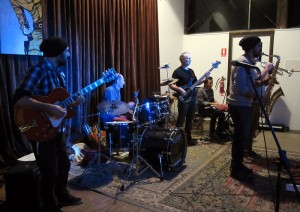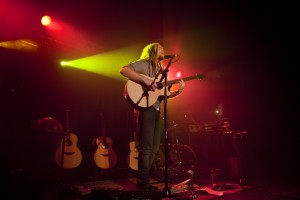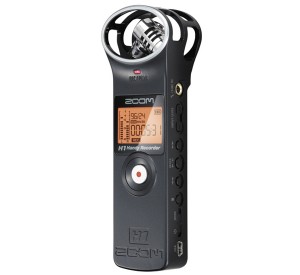How To Perform Like a Pro – 13 Top Tips
In the past month I’ve been busy gigging with the 3 bands I play guitar (Deuawd) and bass (BLTs and Trumpet) in plus putting on my mid-year student concert. This is one of my excuses for not writing an article for a while. However this period of busy gigging has given me the inspiration to give you 13 top tips on how to perform like a pro whether it be at a festival in front of 1000s or at a small café/coffee shop.

Before The Gig
- Turn up early
Apart from making it less stressful for you it shows to the venue and any fellow performers that you’re organized and respect their time.
- Check All You Gear
Before leaving home check that you have everything you need including e.g. batteries for your pedals/acoustic guitar preamp, leads that work reliably, spare strings, tuner, capo, picks, straps, sheet music, stands, amps that work correctly at a gig volume etc. Once you’re at the venue tune your guitar. Even though it may have been in tune at home it can be cold/hot in the car and possibly hot on stage due to the lights which will put your guitar out of tune.
- Play Minimally During Sound Check
Even if it just you and small amp save your playing for the actual gig. Don’t excessively noodle around. Get your sound right then you’re ready to go. This is even more important in a band that is being sound checked with a sound/audio engineer as it will be very annoying to them when they’re trying to get a bass or drum sound etc. Try and only play when asked by the engineer.
- Don’t Play Too Loud
Whether it’s an acoustic gig or full on heavy metal gig its all about achieving a balance that is right for the room and the audience. In a band situation it will help the sound engineer to make the whole band sound better.
- Play Guitar Warmup Exercises
Simple exercises like below are great to get the fingers moving and can be done with the guitar volume turned down or even off.
- If Singing Do A Vocal Warmup
Even if you’re just singing backup vocals some simple scale and arpeggio exercises at home before you leave or in the car will help you to sing fuller, more naturally and hit those high notes with out straining your voice. Check out YouTube for some exercises.
During The Gig
- Have a Set List
Following a set list (given to all band members) will help to avoid awkward pauses between songs on stage. To sound even more slick start playing the next song as soon as the applause for the previous song begins to fade away. At some gigs this might mean straight away! If there needs to be a pause between songs to change pedal settings, guitars etc. get your singer (or however has the microphone) to engage the audience with some banter. It doesn’t have to be anything too long. Maybe just a quick thanks to the audience for coming and letting them know the name of the band and the next song etc.
- Don’t Drink Too Much

It may not be very old school rock n roll but there’s nothing worse than seeing a song being sloppily murdered by a drunk musician. It’s OK to have 1 or 2 drinks but for some people maybe its best to stick with water or soft drinks?
- Have Another Guitar for Alternate Tunings
If you have 1 or 2 songs with an alternate tuning (e.g. open G or E) its best to take another guitar to the gig tuned to these notes prior to starting your performance. No one really wants to watch you tune your guitar on stage. Check out performers like Newton Faulkner who plays with multiple acoustic guitars onstage all in different tunings for a quick transition between songs.
- Stick To Your Time Limit
Unless you’re headlining with no other acts following you be aware of the time you’ve been on stage. There will often be another act or sometimes the venue will have liquor licensing limits dictating when live music has to stop. This may mean that your set list may be cut short. If you’re aware of the cut off time 10-15 minutes prior you should be able to make a choice about which of the last 2-3 songs you may have to cut. This will enable you to still play your final killer song.
After The Gig
- Get Off Stage ASAP

This is mainly important when playing with other bands as they will need time to setup if they’re playing after you. Plus it helps to keep the gig/festival running to schedule for the technical crew and the audience.
- Say Thanks
It’s extremely important and polite to thank your audience (big or small) and of course the sound, lighting people, venue, bar staff, the other bands who you may have performed with. No one wants to play with, book or see rude people no matter how good they may be.
- Record The Gig
If possible record and or video gig and listen/watch critically afterwards to see what to improve in your performace whether it be musically, minimising song gaps or engaging the audience or other band members with your slick moves.
